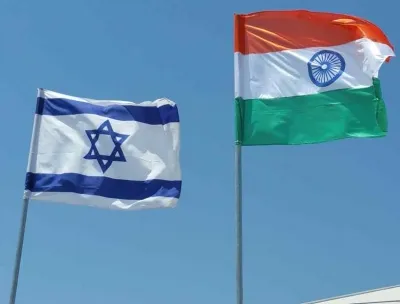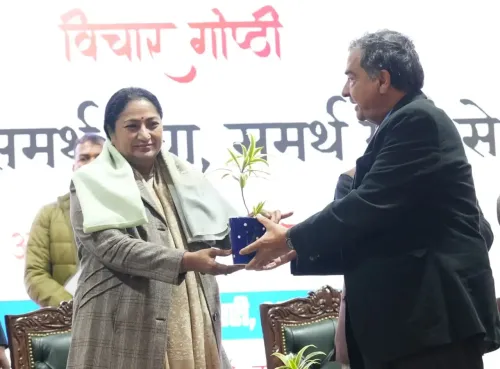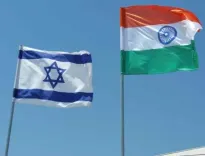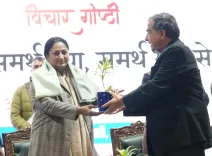Is Nuclear Sabre-Rattling Pakistan’s Standard Practice? India Criticizes Pak Army Chief's Reckless Statements in the US
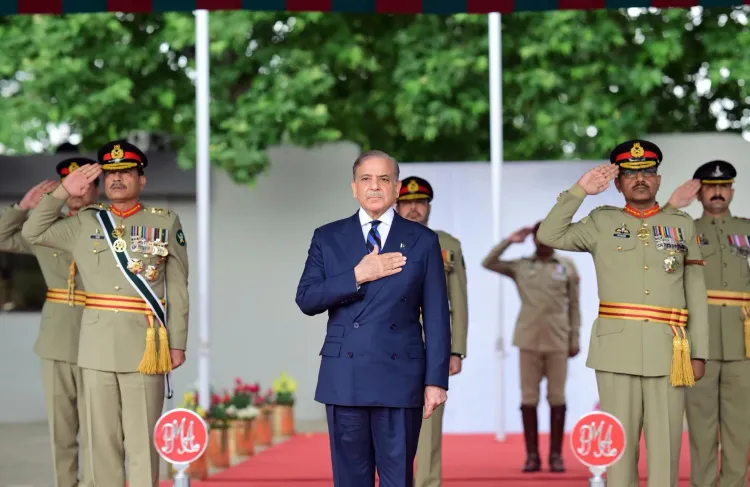
Synopsis
Key Takeaways
- India firmly opposes nuclear threats.
- The Indus River remains a contentious issue.
- Munir's comments reflect ongoing tensions.
- International community is concerned.
- Pakistan's military faces substantial challenges.
New Delhi, Aug 11 (NationPress) India strongly condemned the reckless comments made by Pakistan's Chief of Army Staff (COAS) Field Marshal Syed Asim Munir during his recent visit to the United States, asserting that "nuclear sabre-rattling is a hallmark of Pakistan".
During his trip to the US, Munir warned that Pakistan would never permit India to restrict the flow of the Indus River and affirmed that it would defend its water rights at all costs, even threatening to demolish any dams India might construct.
"We will monitor India's dam constructions, and if they proceed, we will dismantle them... The Indus River is not a familial asset of the Indians. We possess sufficient resources to thwart India's attempts to manipulate the river," Munir stated, as reported by the prominent Pakistani newspaper Dawn at an event hosted by members of the Pakistani-American community in Tampa, Florida.
India, having firmly established its stance against nuclear coercion, reacted robustly to Munir's statements.
"We have noted the comments reportedly made by the Pakistani Chief of Army Staff during his US visit. Nuclear sabre-rattling is truly Pakistan's modus operandi. The international community can form its own judgments regarding the recklessness of such statements, which further undermine confidence in the nuclear command and control structures of a country where the military collaborates closely with terrorist factions," stated Randhir Jaiswal, spokesperson for the Ministry of External Affairs (MEA).
Reports indicate that Munir visited two US cities over the weekend before traveling to Belgium on Sunday, completing his second high-profile trip to the US in less than two months.
"It is unfortunate that these statements were made on the soil of a friendly third nation. India has made it unequivocally clear that it will not succumb to nuclear intimidation. We will persist in taking all necessary measures to protect our national security," the MEA statement emphasized.
Munir's previous visit to Washington in June was marred by significant protests led by members of the Pakistani diaspora and supporters of former Prime Minister Imran Khan's Pakistan Tehreek-e-Insaf (PTI) party. While Rawalpindi portrayed Munir's visit as a means to fortify military and strategic relations with the US, the backlash from overseas Pakistanis turned his stay at a luxury hotel into a scene of heated demonstrations.
Protesters accused Munir of human rights abuses, labeling him as "the killer of Pakistanis" and "the killer of Islamabad". A widely circulated video showcased one protester shouting, "Geedad, geedad, geedad (jackal, jackal, jackal)", a pejorative term implying cowardice and deceit. This clip rapidly gained traction on social media, described by analysts as a significant embarrassment for the Pakistani military establishment.
Analysts believe that Munir's reception as a key figure in discussions in Washington and Beijing underscores the extent to which Pakistan's military has encroached into areas typically governed by elected representatives.
"Asim Munir's assertive diplomacy overseas is merely one aspect of a larger consolidation of power domestically, which has plunged Pakistan into what can only be characterized as a military-led 'hybrid authoritarianism'. Beneath the civilian facade, the military has manipulated all institutional levers to dominate the judiciary, economy, and legislative processes," a defense expert conveyed to IANS.
"Perhaps the most severe indictment of Asim Munir's leadership is not just the breadth of his ambition, but the immense cost it has incurred. Munir may be remembered as the army chief who lost hundreds of soldiers to insurgent attacks within just two years of his tenure. From Balochistan to the tribal regions of Khyber Pakhtunkhwa (KPK), Pakistani forces have faced unrelenting attacks from a revitalized insurgency, particularly groups like the Balochistan Liberation Army (BLA) and Tehreek-e-Taliban Pakistan (TTP)," he added.
In April, India strongly criticized the Pakistani Army Chief for referring to Kashmir as Islamabad's "jugular vein".
"How can anything foreign be their jugular vein? This is a Union Territory of India. Its only connection to Pakistan is the need for that country to vacate illegally occupied territories," Jaiswal remarked during a media briefing on April 17.


